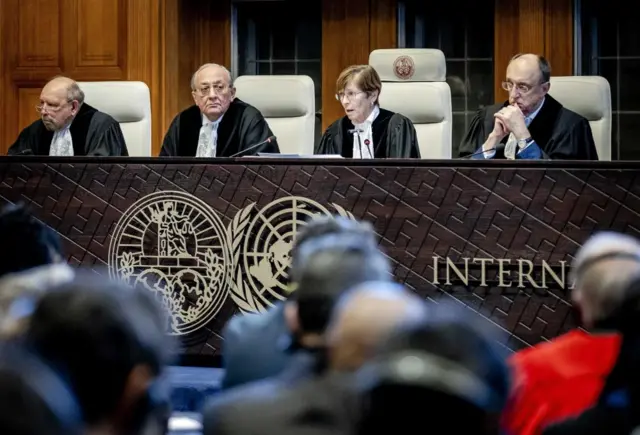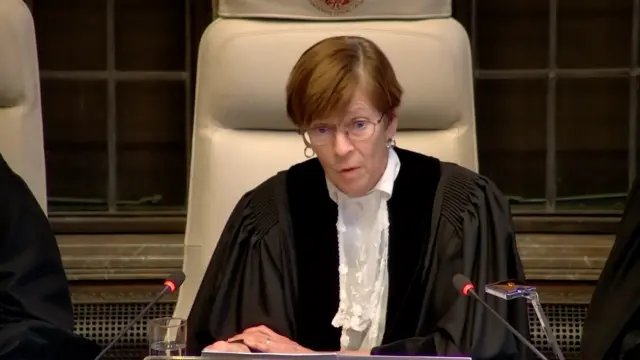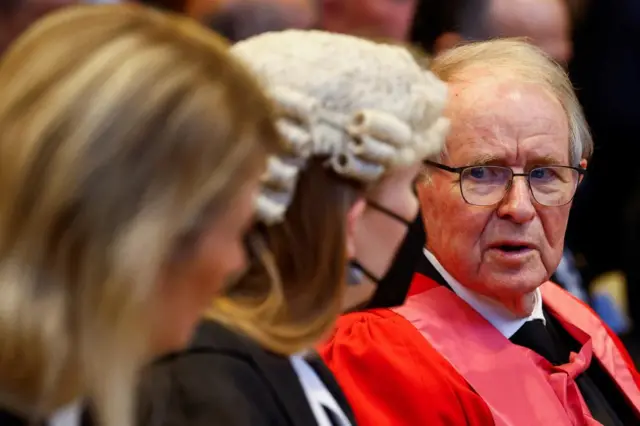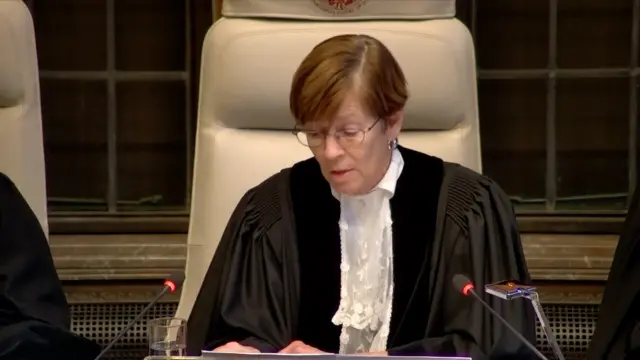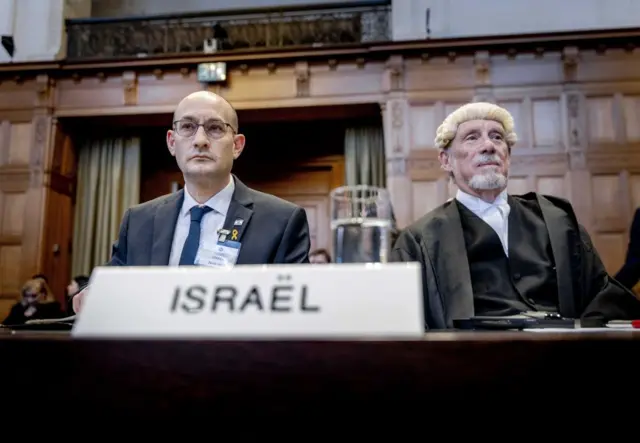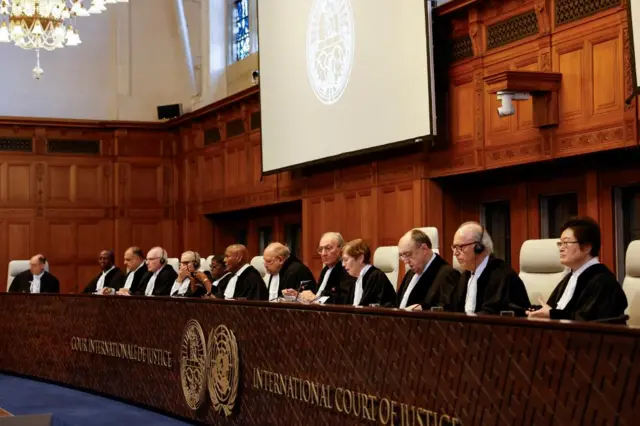WATCH: Court order 'doesn't work' without ceasefirepublished at 13:52 GMT 26 January 2024
I hoped ceasefire would be ordered, says South Africa foreign minister
South Africa's foreign minister Naledi Pandor is speaking to reporters outside the court.
She says that without a ceasefire in Gaza, "the order doesn't actually work".
"I would have wanted that the word cessation is included in the judgement but I'm satisfied with the directions that have been given," she says.
Asked by a journalist whether she thinks Israel "will conform to the orders", she replies she's "never really been hopeful about Israel", but hopes the country's "powerful friends" will advise it to comply with the order.
The South African government has also released a statement welcoming the court orders and calling the judgement a "landmark ruling".




